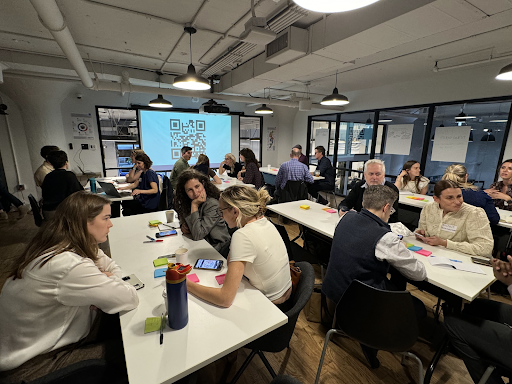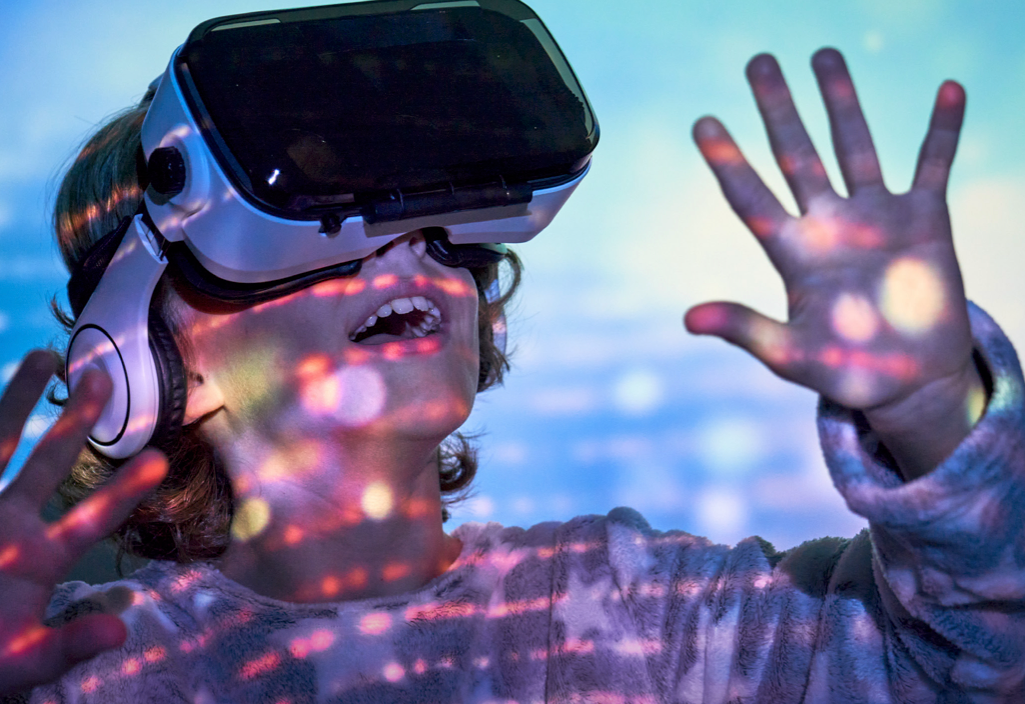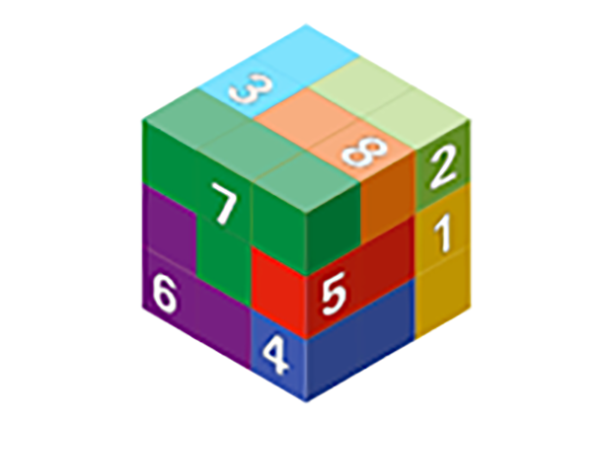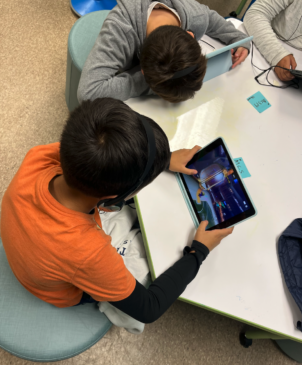
The importance of play for children’s development and learning has long been recognized by parents, educators and researchers.1 Much of our lives are now being lived in digital contexts, and this is true for children as well. With the global popularity of video games such as Minecraft and Angry Birds, a great deal of children’s play these days includes digital games. This has raised some concerns about possible negative effects of digital technology, and it is important that parents help their children find balance in their lives2. However, we should also consider that digital games may actually be of benefit to children by supporting play that can enhance well-being.
To determine how digital games can potentially enhance well-being, our team at New York University and City University New York Graduate Center joined with colleagues from the University of Sheffield, the Queensland University of Technology, and UNICEF Innocenti – Global Office of Research and Foresight to conduct research on this topic. The study findings were recently published in a report released this week as part of the Responsible Innovation in Technology for Children (RITEC) project, an international collaboration co-founded by UNICEF and the LEGO Group and funded by the LEGO Foundation.

For our portion of the research, we, along with our graduate student teams, invited children (ages 8 to 12) to play a select set of tablet-based video games. We chose six commercially available, child-friendly games (Plants vs. Zombies, Rocket League, Angry Birds, World of Goo; LEGO Builders Journey, LEGO Tower) that included play activities potentially related to a theory-based well-being framework3.
Through observation of the children playing, video analysis of gameplay, as well as post-play interviews with the children to ask them what they liked or disliked in a game and how playing made them feel, we identified specific patterns of play related to different well-being concepts. The digital play experiences fell into distinct categories, in addition to enjoyment and relaxation, the three most prominent being: Competence, Agency/Autonomy, and Relatedness/Belonging.
- Competence is fostered through digital play experiences that enhance children’s perceptions of their efficacy, skills, and abilities, leading to a sense of mastery and achievement. For example, one child scored low against a computer opponent in Rocket League, a soccer game with cars. After learning some tricks and practicing, the child was able to score higher in the game. Digital play allows children to experience mastery and feel that they can achieve goals through their own effort.
- Autonomy and agency are fostered when children have control over their own play experiences, resulting in feelings of agency, choice, and freedom. One common example of this is character customization, where children are able to do things such as dress game characters like themselves or name them after their best friends.
- Relatedness and belonging are fostered when children are able to form social connections with other players, or even parasocial connections with game characters, to create a sense of belonging. This can happen when children solve challenges collaboratively, ask more experienced players for help, or share their accomplishments with friends – either online or in person.
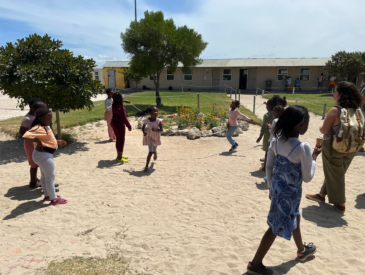
The observations study revealed the potential of the selected digital games to influence child well-being. The team then conducted research to determine if playing digital games does actually enhance children’s well-being. For the intervention, 8- to 12-year-old children from the US, Chile, and South Africa played tablet-based digital games over the course of a 10-week afterschool program. To serve as a control group, well-being measures were also given to other children from the same schools who participated in their usual afterschool activities, like basketball or playground games. Using established surveys3,4, the children’s well-being was measured before and after the digital play intervention. Comparing the play and control groups in the three countries, key findings include:
- For the digital play group in South Africa, there was a significant gain in overall well-being.
- In the United States and Chile, there were also positive effects of digital play: Children who indicated specific psychological needs in the pretest demonstrated improvements in related aspects of well-being in the posttest. For example, children with greater feelings of loneliness and social exclusion had post-play improvements in the well-being construct of relatedness.
- Finally, even though the children all had their own tablets to play games, they still socialized with one another. For example, children compared scores and challenged each other, shared hints and tips, and made-up stories involving their different games. These social interactions were found to be positively related to gains in children’s well-being.
We also asked parents about their opinions, feelings, and experiences regarding digital gameplay. Results showed that parents who play games themselves and parents who have more positive attitudes about potential benefits of games were more likely to co-play with their children. Co-play is one of the ways that digital games could benefit well-being, particularly for younger children.
Although more work is needed, there are some takeaway messages for parents from this research. First, digital play – like other forms of play – does have the potential to benefit children’s well-being. However, different games have different potential benefits. Parents should look for games that allow children to engage in activities related to well-being, such as setting and achieving goals to foster a sense of competence in children. Children also tend to seek out games and play that meet their own unique needs.
Another finding is that playing digital games, even single-player games, is often social for children, and the social connection made through games can support well-being. For younger children, this can occur through co-playing with their parents. Finally, parents should talk to their children about why they like to play digital games, what they enjoy about it, and how it makes them feel. It will allow parents to better understand their children, and children to better understand themselves.
References
1 Homer, B.D., Raffaele, C. & Henderson, H. (2020). Games as Playful Learning: Implications of Developmental Theory for Game-Based Learning. In J.L. Plass, R.E. Mayer, & B.D. Homer (Eds), The Handbook of Game-based Learning (pp. 25-52). Cambridge, MA: MIT Press.
2 https://joanganzcooneycenter.org/initiative/ritec/
3 https://www.unicef.org/innocenti/reports/responsible-innovation-technology-children
4 Ravens-Sieberer, U., Auquier, P., Erhart, M., Gosch, A., Rajmil, L., Bruil, J., Power, M., Duer, W., Gloetta, B., Gzemy, L., Mazur, J., Czimbalmos, Atountas, Y., Hagquist, C., & Kilro, J. (2007). The KIDSCREEN-27 quality of life measure for children and adolescents: psychometric results from a cross-cultural survey in 13 European countries. Qual Life Res, 16, 1347–1356. https://doi.org/10.1007/s11136-007-9240-2
5 Van der Kaap-Deeder, J., Soenens, B., Ryan, R. M., & Vansteenkiste, M. (2020). Manual of the Basic Psychological Need Satisfaction and Frustration Scale (BPNSFS). Ghent University, Belgium.

Dr. Bruce D. Homer is a Professor of Educational Psychology in the Learning, Development and Instruction subprogram. He is the director of the Child Interactive Learning and Development (CHILD) Lab at the Graduate Center. His research examines how children acquire and use “cultural tools” to store and transmit knowledge (e.g., language, literacy, and information technologies), and how these tools transform developmental and learning processes.

Dr. Jan L. Plass, Paulette Goddard Chair in Digital Media and Learning Sciences and Professor at New York University, is the founding director of the CREATE Consortium for Research and Evaluation of Advanced Technology in Education and co-director of the Games for Learning Institute. Dr. Plass’ draws from a broad range of fields, including cognitive science, learning sciences, computer science, and design, to conceptualize, implement, and study new and more effective ways of learning with digital technologies, especially for underserved communities.

Fabian Froehlich is an academic with a diverse background in film and media studies. Prior to pursuing his graduate studies, Fabian worked in the film industry, using his creativity and technical skills to entertain audiences. After transitioning to academia, he turned his attention to the use of media for educational purposes. He graduated in Media and Technology Education Studies at the University of British Columbia, a field that allows him to explore his passion for the intersection of media and education. His research interests center on learning in virtual worlds, a cutting-edge area of study that examines how virtual environments can be used to enhance learning outcomes.
